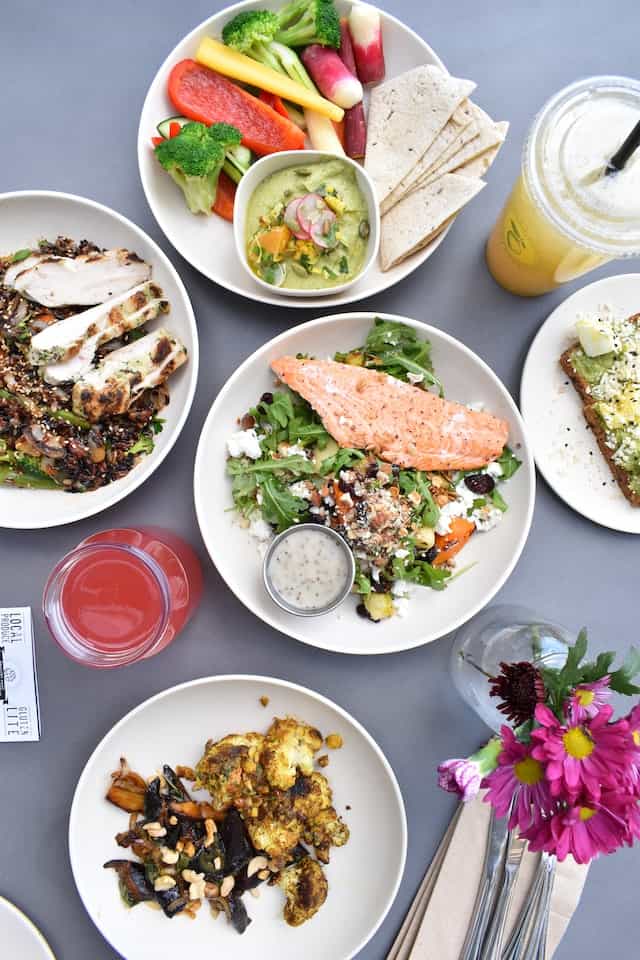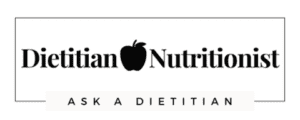As you get older, you might notice that your body is more sensitive to the foods you eat. You are no longer in that stage where you can eat anything you want without it really having much of an effect on you! While nutritious eating and maintaining a healthy weight is important at any age and stage of life, it may start to become more of a priority when you can really feel a difference when you eat well.
The best meals to eat in your 40’s if you want to maintain a healthy weight should include carbohydrates, lean protein, and healthy fats. Each of these nutrients do something unique for your body- which is why you need a combination of all of them together. Some examples of the best meals to eat in your 40’s to maintain your weight are vegetarian chili, sweet potato and chicken veggie skillet, chef salad, curry and rice, oatmeal and bananas, roasted veggies with hummus, salads, whole wheat sandwiches, and fish with vegetables.
Eating regularly throughout the day, being mindful of portion sizes, and listening to your body’s hunger and fullness cues are also essential parts of healthy eating and weight maintenance.
Read on for more information about what is a healthy weight for someone in their 40’s, tips for maintaining a healthy weight- especially after weight loss, healthy meal ideas, and helpful tips for meal planning and prepping for busy adults.

What is a Healthy Weight for Someone in Their 40’s?
A common way of determining if you are within a healthy weight range is by using BMI (body mass index). Although it might be one measurement to consider, BMI is not the best indicator of health status. BMI only accounts for height and weight, but there are so many other important factors that need to be considered.
Evaluating whether or not you are at a healthy weight should include an evaluation of body composition, eating habits, exercise habits, medications, medical history, mental health and other relevant factors. Remember that health status is so much more than how much you weigh!
It can also be helpful to evaluate trends in weight over time as well as how you are feeling, your energy levels, stamina, etc. It is helpful to work with a doctor and dietitian to have help getting to the root of the problem and for suggestions on how to best improve your health in doable ways.
Tips for Maintaining a Healthy Weight
If you have lost weight and are wanting to turn more towards a maintenance phase or if you just want to avoid putting on excess weight as you get older, here are some of my best tips for you!
- Recognize that as your body gets older, physical and hormonal changes actually make it harder to lose weight so don’t be too hard on yourself if your body does change a little bit as you get older. It is actually a pretty natural process.
- Eat regularly throughout the day. If you let yourself get to the point where you are absolutely famished, it is much more likely that you will overeat later on. Your body needs to get the energy when it needs it, which is consistently throughout the day!
- Include a variety of foods from all of the food groups: grains, dairy, protein, oils, fruits, and vegetables. Each food group provides different nutrients that your body needs to function at its best. Additionally, each food within each food group has a different nutrient profile and provides your body with something unique!
- Try to match your energy intake with your energy expenditure. If you are consistently eating more calories than you are burning through, your weight is likely to increase. However, if you are hungrier than your calculated “calories burned” some days, listen to what your body is telling you and eat more! Your body knows better than any tracking app.
- Include a combination of carbohydrates, protein, and fat each time you eat. While carbohydrates are your body’s main energy source, protein and fat help to slow down your digestion to sustain that energy more throughout the day.
- Practice mindful eating by removing distractions while you eat. Be fully present as you eat and focus on your five senses as you enjoy each meal or snack. Work on recognizing the point where you feel satisfied, rather than overly full, as a good stopping point.
- Exercise is important, not just for weight loss, but also for weight maintenance and overall health. Movement should be rejuvinating to your body and never should be used to punish your body for what you ate or didn’t eat. Look for ways to include fun physical movement and mix it up to keep things interesting!
- Manage your stress levels. Take time for yourself to do things that you enjoy and that help you to mentally unwind. You might be surprised how interconnected your body is- everything needs to be in balance for you to truly feel your best.
Healthy Meal Ideas for Healthy Weight in Your 40’s
If you want to eat healthier to help maintain weight loss or maintain a healthy weight, but aren’t really sure what to eat… remember that your meals should taste good! Healthy doesn’t mean unappetizing and if it does, you are doing it wrong! You should be eating what sounds good to you and what is good for your body. Healthy food can definitely be delicious food too!
Here are a few ideas for healthy meals that are simple and balanced:
Breakfast
- Oatmeal with protein powder and berries
- Greek yogurt with strawberries and granola
- Scrambled eggs with toast and a fruit smoothie
- Smoothie with fruit, greek yogurt, and nut butter
- Cereal with high protein milk and a banana with peanut butter
- Hard boiled eggs, a bagel with cream cheese, and orange juice
- Pancakes with fried eggs, milk, and berries
- Omelet with veggies, toast, and an apple
- Toast with peanut butter and jam, with chocolate milk
- Protein muffins with peaches and milk
- Overnight oats
- Egg and cheese sandwich and orange slices
Lunch and Dinner Ideas
- Salmon with rice and asparagus
- Grilled chicken with teriyaki sauce, and fried rice with veggies
- Crackers, cheese, grapes, and carrots with hummus
- Rice bowls with ground beef, lettuce, rice, salsa, tomatoes, black beans, corn, avocado, peppers, olives, etc.
- Wraps made with a tortilla, lettuce and tomato, hummus, and shredded chicken
- Salad with tomatoes, cucumbers, cheese, avocado, olives, peppers, mushrooms, diced grilled chicken, corn, black beans, chickpeas, dressing, and a roll on the side
- Quesadilla made with chicken and cheese, and a side salad
- Hot ham and cheese sandwich with a green smoothie
- Soup and a side salad
- Mini pizza on whole wheat pita bread with sauce, cheese, and toppings (tomatoes, olives, pepperoni, peppers, chicken, spinach, etc.)
- Panini sandwich with chicken, honey mustard, lettuce, tomato, cheese, and any other toppings your heart desires!
- Pork chops with baked potatoes and broccoli
- Chicken sausage with potatoes, carrots, peppers, and cauliflower
- Tacos with ground turkey, tomatoes, lettuce, sour cream, avocado, cheese, and salsa
- Curry and rice
Meal Planning Tips in Your 40’s
If cooking feels overwhelming to you, rest assured that you are not alone. After a long day of work, school, or taking care of kids- sometimes cooking is the last thing you want to do. Luckily, there are ways to make cooking simpler so that it doesn’t feel like a huge chore to be done everyday.
- Plan leftover days. That means you intentionally cook extra food so that you can rely on the extras on the days where you only have the energy to reheat food in the microwave.
- Choose meals that sound good to you. You will be much more willing to put in some extra time into cooking meals that you actually enjoy rather than ones you don’t love so much.
- Try out new recipes to keep cooking fun! Every once and a while I go look on Instagram, Pinterest, or Tik Tok for new meal ideas that look tasty and I include them in my meal plan for the week.
- Plan to cook on the days that you don’t have as much going on. If you have been running around all day, cooking dinner might be a bit of a challenge and that might be a better day to have leftovers. I usually recommend cooking 3-4 dinners per week and having leftovers for other meals.
- Take time to wash and cut up your produce ahead of time, especially if it is common for those fruits and veggies to go bad in the back of your fridge. It is much easier to grab something healthy when it is already washed, cut, and individually portioned out!
- Look for quick substitutes that cut down on cooking time. Some of my favorite options are microwavable rice pouches, pre-cut veggies (try a veggie chopper!), frozen vegetables, pre-cooked chicken, steamable bags for cooking in the microwave, pre-made sauces, etc. Thankfully there are lots of products on the market that cut down on prep time, and although they might be a bit more expensive, it might be worth it to you on some days!
- Keep a list of all of the meals you and your family enjoy, regardless of whether or not they have a recipe to follow. That way, when you are planning meals you can just look at your list for ideas rather than coming up with meals from memory.
- Take advantage of freezer meals that you can quickly toss into a slow cooker or instant pot. There are many companies that sell these simplified meals so that you can keep them in your freezer for the day you don’t have time to cook.
- Keep balanced snacks on hand for the days where things do not go as planned (it will happen no matter how well you plan in advance!)
Summary
If you want to be healthy and maintain your weight as you get older, you don’t have to follow a crazy diet or eat bland and boring foods. Instead, focus on making small changes for your health such as choosing a low-sodium sauce or by swapping ground beef for ground turkey in some recipes. I like to make small changes for my health as long as I am not sacrificing flavor and satisfaction.
As you include a variety of foods from all of the food groups, listen to your body’s hunger and fullness cues, eat regularly and balanced throughout the day, and be mindful of portion sizes- you might be surprised how easy and enjoyable it is to eat healthy and maintain your weight!
